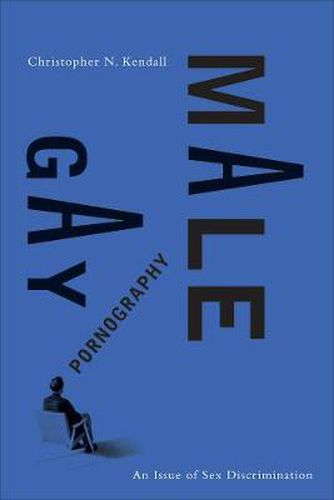Readings Newsletter
Become a Readings Member to make your shopping experience even easier.
Sign in or sign up for free!
You’re not far away from qualifying for FREE standard shipping within Australia
You’ve qualified for FREE standard shipping within Australia
The cart is loading…






The 2000 case of Little Sisters Book and Art Emporium v. Customs Canada provided Canada’s highest court with its first opportunity to consider whether the analysis set out in R. v. Butler - in which the Supreme Court identified pornography as an issue of sex discrimination - applies to pornography intended for a lesbian or gay male audience. The Court held that it did, finding that, like heterosexual pornography, same-sex pornography also violates the sex equality interests of all Canadians. Christopher Kendall supports this finding, arguing that gay male pornography reinforces those social attitudes that create systemic inequality on the basis of sex and sexual orientation by sexually conditioning gay men to those attitudes and practices. He rejects the equality claims of gay male pro-pornography advocates and contends that, as a result of litigation efforts like those brought by lesbian and gay activists in the Little Sisters case, the notion of empowerment and the rejection of those values that daily result in all that is anti-gay have been replaced with a misguided community ethic and identity politic that encourages inequality. Gay Male Pornography will foster a much broader debate about gay male identity and those legal strategies aimed at promoting it. No one has ever tackled this issue from this particular persective and the arguments presented are both compelling and long overdue.
$9.00 standard shipping within Australia
FREE standard shipping within Australia for orders over $100.00
Express & International shipping calculated at checkout
The 2000 case of Little Sisters Book and Art Emporium v. Customs Canada provided Canada’s highest court with its first opportunity to consider whether the analysis set out in R. v. Butler - in which the Supreme Court identified pornography as an issue of sex discrimination - applies to pornography intended for a lesbian or gay male audience. The Court held that it did, finding that, like heterosexual pornography, same-sex pornography also violates the sex equality interests of all Canadians. Christopher Kendall supports this finding, arguing that gay male pornography reinforces those social attitudes that create systemic inequality on the basis of sex and sexual orientation by sexually conditioning gay men to those attitudes and practices. He rejects the equality claims of gay male pro-pornography advocates and contends that, as a result of litigation efforts like those brought by lesbian and gay activists in the Little Sisters case, the notion of empowerment and the rejection of those values that daily result in all that is anti-gay have been replaced with a misguided community ethic and identity politic that encourages inequality. Gay Male Pornography will foster a much broader debate about gay male identity and those legal strategies aimed at promoting it. No one has ever tackled this issue from this particular persective and the arguments presented are both compelling and long overdue.